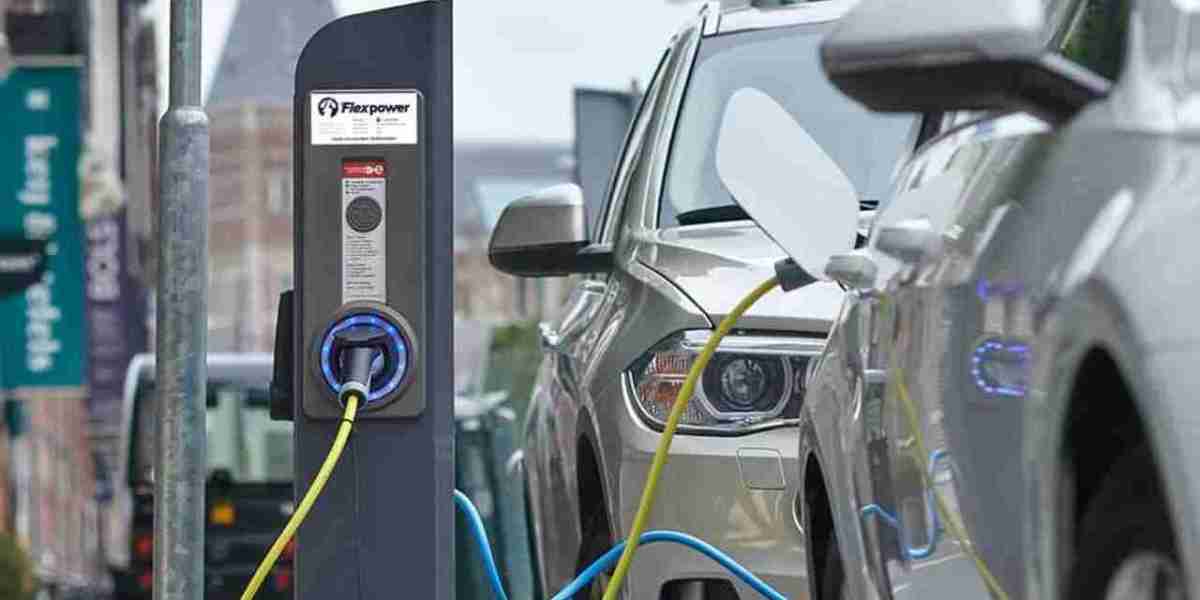The Electric Vehicle charging station market is experiencing rapid growth due to the accelerating adoption of electric vehicles worldwide. As the global focus shifts towards reducing carbon emissions and increasing the use of renewable energy, electric vehicles have become a cornerstone of sustainable transportation. With this growth, the demand for an extensive and reliable network of EV charging stations is becoming increasingly critical. This article explores the recent developments in the EV charging station market and examines future trends that will shape its growth.
Expansion of Charging Infrastructure
One of the most significant developments in the electric vehicle charging station market is the rapid expansion of charging infrastructure. Governments across the world are heavily investing in building a robust EV charging network to promote EV adoption. For instance, the U.S. government allocated billions of dollars for the expansion of EV charging stations under the Infrastructure Investment and Jobs Act, aiming to have 500,000 charging stations across the country by 2030. Similarly, the European Union has set ambitious goals to increase the number of charging points to accommodate the growing fleet of electric cars.
The private sector is also playing a crucial role in the expansion of charging networks. Major players such as Tesla, ChargePoint, and Shell are actively establishing new charging stations, particularly in urban areas, highways, and other strategic locations. Many of these companies are also developing fast-charging solutions that can significantly reduce charging time, enhancing the convenience for EV owners.
Technological Advancements
The electric vehicle charging station market has seen remarkable technological advancements in recent years. A key development is the introduction of ultra-fast charging stations, which can charge an EV to 80% in just 20 to 30 minutes. This is a significant improvement over traditional chargers that typically require several hours to fully charge a vehicle. Fast-charging stations are expected to become more common as EV manufacturers continue to innovate and improve battery technology.
Another area of innovation is the integration of smart charging technology. Smart charging stations use advanced algorithms and machine learning to optimize energy use, control charging schedules, and provide real-time data to users. These stations can also integrate with renewable energy sources, such as solar and wind, to reduce the environmental impact of the charging process.
The development of Vehicle-to-Grid (V2G) technology is also gaining traction. V2G technology allows EVs to return electricity to the grid, acting as mobile energy storage units. This not only benefits the grid by balancing supply and demand but also offers EV owners the potential to earn money by selling electricity back to the grid.
Charging Network Partnerships and Collaborations
The expansion of the EV charging station network is not just about building new stations. It also involves creating synergies and partnerships between various stakeholders, including governments, private companies, and utilities. Several partnerships have been formed to enhance the availability and accessibility of charging stations.
For instance, in the U.S., major automakers like Ford, General Motors, and Rivian have joined forces with companies such as Tesla and Electrify America to create a nationwide EV charging network. In Europe, partnerships between utility companies and automakers are also gaining momentum, with several companies collaborating to deploy ultra-fast charging stations across the region.
Additionally, companies are increasingly offering roaming agreements, allowing EV owners to access charging stations across different networks with a single subscription. This provides users with greater convenience and reduces the complexity of navigating different charging infrastructures.
Government Support and Regulations
Government policies and regulations play a pivotal role in shaping the growth of the EV charging station market. Governments are offering various incentives and subsidies to accelerate the adoption of electric vehicles and the infrastructure to support them. In addition to financial incentives, governments are implementing regulations that require the installation of charging stations in public spaces, parking lots, and along highways.
For example, many countries are mandating that new buildings, particularly commercial properties, include EV charging points in their design. This ensures that charging stations are available to a broad range of users, including those who live in multi-unit dwellings where home charging may not be feasible.
Future Trends
As the EV charging station market continues to evolve, several key trends are likely to shape its future. These include the development of wireless charging technology, expansion into rural and remote areas, and the integration of renewable energy sources into the charging infrastructure. Furthermore, the rise of autonomous vehicles and the increasing electrification of public transport are expected to drive further demand for EV charging stations.
The global market for EV charging stations is expected to grow at a substantial rate in the coming years, driven by these technological advancements, increasing investment, and supportive government policies. By 2030, the market is projected to surpass $100 billion, with a growing number of charging stations worldwide.


